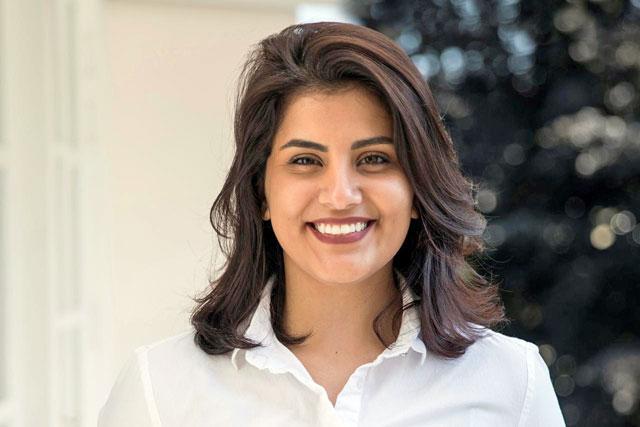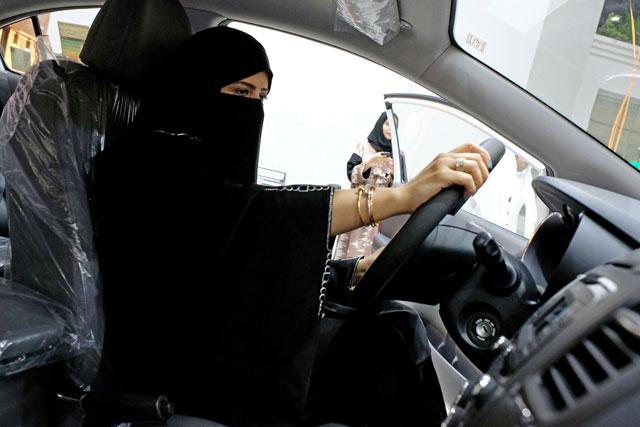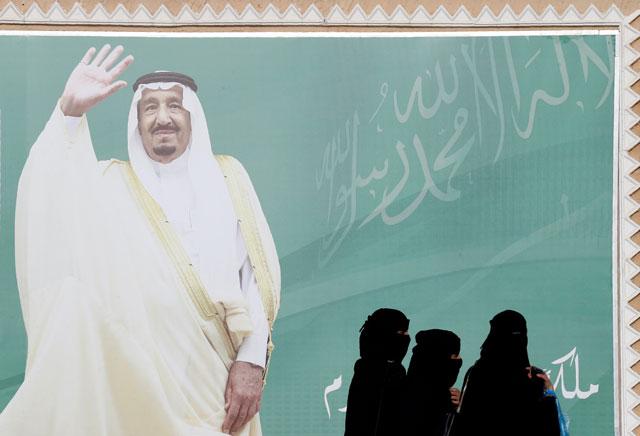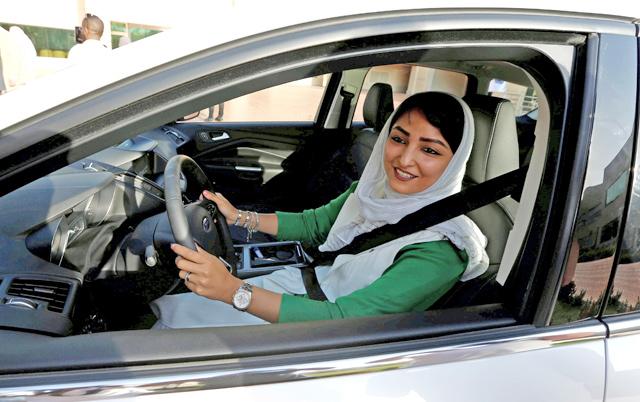You are here
Saudi women’s rights activists stand trial in criminal court
By Reuters - Mar 13,2019 - Last updated at Mar 13,2019

Saudi women’s rights activist Loujain Al Hathloul is seen in this undated handout photo (Reuters photo)
RIYADH — Several Saudi Arabian women rights activists stood trial on Wednesday for the first time since a group of them were detained last year in a case that has intensified scrutiny of Riyadh’s human rights record after the murder of a prominent journalist.
Loujain Al Hathloul, Aziza Al Yousef, Eman Al Nafjan and Hatoon Al Fassi are among around 10 women appearing before the criminal court in the capital, Riyadh, where charges will be presented against them, court president Ibrahim Al Sayari said.
He was speaking to reporters and diplomats, who were barred from attending the session.
The women are among about a dozen prominent activists who were arrested last May in the weeks before a ban on women driving cars in the conservative kingdom was lifted.
At the time of the arrests, the public prosecutor said five men and four women were being held on suspicion of harming the country’s interests and offering support to hostile elements abroad. State-backed media labelled them as traitors and “agents of embassies”, unnerving foreign diplomats in the key US ally.
Hathloul’s brother tweeted late on Tuesday that the family had been informed that the trial had been moved to the criminal court from the specialised criminal court, which was set up to try terrorism cases but is often used for political offences. It was not clear what was behind the decision.
Three dozen countries, including all 28 EU members, called on Riyadh last week to release the activists. US Secretary of State Mike Pompeo and his British counterpart have said they raised the issue with Saudi authorities during recent visits.
Activists say some of them, including Hathloul, were held in solitary confinement and subjected to mistreatment and torture, including electric shocks, flogging and sexual assault. Saudi officials have denied those allegations.
Other detainees include Nouf Abdelaziz, Mayaa Al Zahrani, Samar Badawi, Nassima Al Saada, Shadan Al Onezi, Amal Al Harbi and Mohammed Al Rabia, according to rights groups.
Hathloul, who had advocated an end to the driving ban and the kingdom’s male guardianship system, was previously detained twice, including for 73 days in 2014 after she attempted to drive into Saudi Arabia from the United Arab Emirates.
Nafjan and Yousef participated in a protest against the driving ban in 2013. Yousef also authored a petition, which Nafjan and Hathloul signed, in 2016 seeking to end male guardianship, which requires women to obtain the consent of a male relative for major decisions.
Activists and diplomats have speculated that the arrests may have been aimed at appeasing conservative elements opposed to social reforms pushed by Crown Prince Mohammed Bin Salman. They may also have been meant as a message to activists not to push demands out of sync with the government’s own agenda.
The prince has courted the West to support his reform drive. But his reputation was tarnished after Saudi agents killed Jamal Khashoggi, a royal insider-turned-critic, last October at the kingdom’s Istanbul consulate.
Dozens of other activists, intellectuals and clerics have been arrested separately in the past two years in an apparent bid to stamp out possible opposition.
Related Articles
DUBAI, United Arab Emirates — Saudi authorities have arrested seven prominent women's rights advocates, dividing public opinion just weeks b
RIYADH, Saudi Arabia — Saudi Arabia has released veteran women's rights activist Aisha Al Manea following her arrest last week with several
RIYADH, Saudi Arabia — Saudi Arabia has arrested at least three more women's rights activists in a widening crackdown just weeks before a ba














